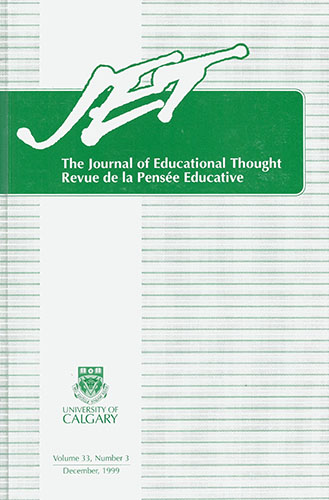Political Doctrine, Philosophy, and the Value of Education: The Legacy of Isocrates and the Socratic Alternative
DOI:
https://doi.org/10.55016/ojs/jet.v33i3.52580Abstract
This paper is concerned with the question, How ought the value of education be decided and defined? There are, in Western educational thought and practice, two answers to this question, the Isocratic and the Socratic. Contrary to most textbooks in the history of education, the Isocratic tradition of educational thought has most influenced Western education, and now constitutes the accepted view even among those who seek to critique the Western tradition. In the dominant Isocratic tradition, education is regarded as a political enterprise, and the value of education is defined relative to political doctrine. In the Socratic view, education is defined as a philosophic enterprise, and the value of education is defined as autonomous and internal to it. The structure of these two modes of examining educational value is outlined. The paper concludes that the question of how we decide what the value of education ought to be must once be asked from the perspective of these two alternatives, and that a recovery of the neglected history of educational philosophy and ideas will be a necessary part of this.
Downloads
Published
Issue
Section
License
The Journal of Educational Thought retains first publication rights for all articles. The Journal grants reproduction rights for noncommercial educational purposes with the provision that full acknowledgement of the work’s source be noted on each copy. The Journal will redirect to the appropriate authors any inquiries for further commercial publication of individual articles. All authors wishing to publish in JET will be asked to fill in and sign a Consent to Publish and Transfer of Copyright agreement.
Authors must affirm that any submission to JET has not been and will not be published or submitted elsewhere while under considration by JET.

